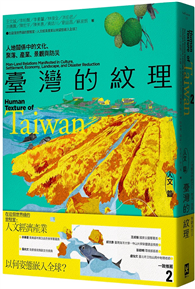The debate about Japan’s ’uniqueness’ is central to Japanese studies. This book aims to illuminate that debate from a comparative and theoretical perspective. It also tests theories of ethnicity and cultural nationalism through the use of Japan as a case study.
Yoshino examines how ideas of national distinctiveness are produced’ and consumed’ in Japanese society through a study of intellectuals, teachers and businessmen. He finds that ideas of Japanese uniqueness, the nihonjinron, have been embraced more by those in business than in education. He looks at the Japanese perception of their own ’uniqueness’ and at the ways in which ideas of cultural distinctiveness are formulated in different national and historical contexts.
This extremely readable book combines anthropology and sociology to present both a historical analysis of the roots of the Japanese sense of national identity and a discussion of the ways in which that sense is changing.
| FindBook |
有 1 項符合
Cultural Nationalism in Contemporary Japan: A Sociological Enquiry的圖書 |
 |
Cultural Nationalism in Contemporary Japan: A Sociological Enquiry 作者:Yoshino 出版社:Routledge 出版日期:1992-08-27 語言:英文 規格:精裝 / 284頁 / 21.6 x 14 x 2 cm / 普通級/ 初版 |
| 圖書館借閱 |
| 國家圖書館 | 全國圖書書目資訊網 | 國立公共資訊圖書館 | 電子書服務平台 | MetaCat 跨館整合查詢 |
| 臺北市立圖書館 | 新北市立圖書館 | 基隆市公共圖書館 | 桃園市立圖書館 | 新竹縣公共圖書館 |
| 苗栗縣立圖書館 | 臺中市立圖書館 | 彰化縣公共圖書館 | 南投縣文化局 | 雲林縣公共圖書館 |
| 嘉義縣圖書館 | 臺南市立圖書館 | 高雄市立圖書館 | 屏東縣公共圖書館 | 宜蘭縣公共圖書館 |
| 花蓮縣文化局 | 臺東縣文化處 |
|
|
圖書介紹 - 資料來源:博客來 評分:
圖書名稱:Cultural Nationalism in Contemporary Japan: A Sociological Enquiry
內容簡介
|










